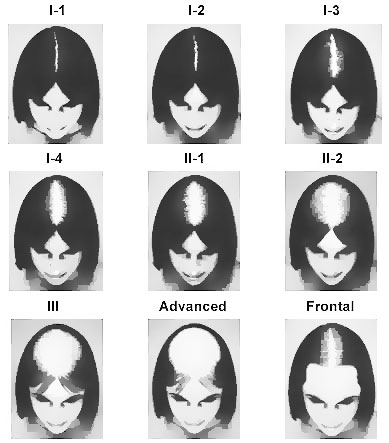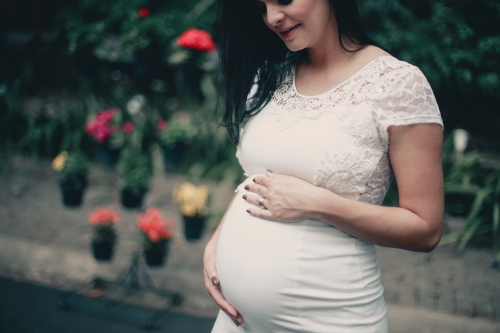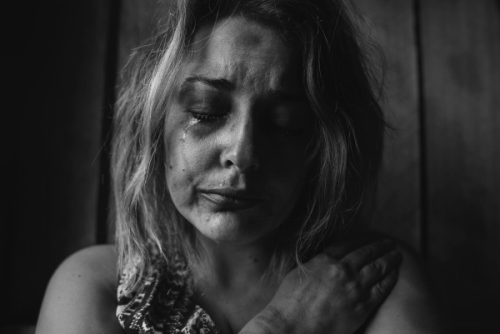My name isn’t Roberta, it’s Robert. I’m a man and I’m supposed to go bald. It’s normal.
While also normal, female hair loss is a much more emotional subject. In extreme cases, it can lead to despair and even total isolation.
I’m not a doctor. But I am a hair loss researcher and nerd with thousands of hours of experience at this point. If nothing else, hopefully this post can help you figure out what’s going on with your hair.
I’ll talk briefly about the top treatments too.
This will be a much more in-depth article on what causes female hair loss than anything you’ll find on popular sites like WebMd or the Huffington Post. They cover the basics only.
My goal is to provide you with a detailed, reader-friendly guide, so you can easily assess your hair loss and quickly review the best, proven options to help manage it.
Before I get started in earnest, here a few things I think everyone should know about female hair loss.
1. It’s complicated
Men aren’t that complex and neither is male hair loss. The condition is genetic over 95% of the time.
We go bald and nobody cares that much.
Female hair loss, on the other hand, can be a challenge to diagnose and treat. Frequently, the hair loss is a result of multiple causes.
2. It’s Shockingly Common
You’re not alone. The majority of women experience some type of hair loss, either genetic or otherwise, in their lifetimes.
A Few Shocking Stats
- Women account for 40% of all hair loss cases.
- 30% develop androgenic alopecia, pattern hair loss, by the age of 30.
- And 50% experience some type of hair loss after menopause. More on all this momentarily.
3. It Can be Devastating
The female species spends endless amounts of time, effort, and money on their hair-care regimens.
If you’re like any of my past girlfriends, your hair is a source of pride and a part of your identity. That’s probably why hair loss is a touchy subject for many women.
Okay, now that’s you have a little background information, let’s dive into what might be causing your hair to fall out in the first place.
15 Common Causes of Female Hair Loss (And What You Can Do About It)
1. Stress
When a male reader sends me a question about stress-related hair loss, I usually roll my eyes a little bit. “Dude, sorry. You’re probably just going bald,” I’ll think to myself. But stress is a common cause of hair loss for women.
Believe it or not, traumatic events such as a divorce or the death of a loved one can trigger hair loss in some people.
I’m not talking about everyday stresses such as paying down a credit card or your husband’s lack of assertiveness. Those aren’t typically hair loss triggers. But major incidents can definitely lead to hair fall.
The good news is this: Stress-related hair loss is typically temporary. And of course, there are a variety of things you can do to manage it and alleviate the symptoms. More on that shortly.
2. Genetics
Okay, this is number 2 but could easily be #1. In the US alone, it’s estimated that 30 million women have female pattern hair loss.
It’s similar to male pattern baldness, but typically not as severe. Women with FPHL often report thinning throughout the scalp, whereas men lose hair in more predictable patterns.
Signs of genetic hair loss in females include the following.
1. A widening part
This is one of the signature symptoms of female hair loss. If you notice your part line is looking thinner, that’s a sign you could have genetic hair loss.

The Ludwig Scale shows the most commonly observed patterns of hair loss in women. L-1 indicates minimal thinning that often goes undetected. L3 is the most advanced pattern.
2. Recession
Many women will notice their hairlines recede slightly with age, another potential sign of pattern hair loss.
3. Old Styles No Longer Work as Well
Ponytail doesn’t feel as full? Unfortunately that could mean you’re experiencing androgenic alopecia, AKA pattern hair loss.
4. Hairs on the Pillow, Etc.
Reports vary. But we all lose roughly 100 hairs per day. That’s normal. But if you’re noticing any classic signs of hair loss, like an abundance of hairs on your pillow every morning, or excessive hair fall in the shower, then you may want to see a dermatologist.
3. Pregnancy

A glowing pregnant lady.
I’ve never gotten anyone pregnant. Too much information, perhaps.
I don’t know how you do ladies do it, honestly. As a bystander pregnancy just looks awful, no offense.
This is a stress-related type of hair loss ultimately — and that makes sense, because I can think of few more stressful experiences in life than giving birth.
Post-pregnancy hair loss in particular is super common.
The condition almost always resolves on its own after a few months. If you’re concerned, see a doctor.
4. Birth Control Pills
Hormonal changes in general can result in hair loss. Whether you’re switching birth controls or coming off them, it could lead to unwanted disruptions in your hair-growth cycle.
If a new prescription is a problem, speak with your doctor about possible alternatives. Discontinuing a medication may also lead to follicular losses, but again, these losses will be temporary.
Interestingly, certain birth control pills are also a fairly common treatments for female hair loss. I can’t say it enough: female hair loss is complicated.
5. Menopause
According to Dr. William Rassman of BaldingBlog, 50% of women experience hair loss after menopause.
Symptoms may include hairline recession, general thinning, or both.
Other unpleasant symptoms such as hot flashes, mood swings, and weight gain are also widely associated with menopause.
6. Hypothyroidism
Hypothyroidism is another somewhat common cause of hair loss in both men and women.
Your thyroid plays an essential role in regulating your metabolism, heartbeat, temperature and more. If it’s not producing enough thyroid hormone (TH), then hair loss is one of the many symptoms that may develop. Weight gain is also frequently reported.
When accompanied by androgenic alopecia, hypothyroidism-related hair loss can become permanent.
7. Sudden Weight Changes
In particular, losing a lot of weight quickly is known to cause hair loss.
Whether your weight loss is due to a crash diet, stress, an eating disorder or other issue, there’s a decent chance you’ll shed some hairs.
While this type of hair loss is usually temporary, it can occasionally become permanent if it’s accompanied by pattern hair loss.
8. Lupus
Lupus can bring many physical and systemic changes to the body, including hair loss. An autoimmune disorder, common symptoms include fatigue, fever, and joint pain. The disease disproportionately affects women.
According to the Lupus Foundation of America, Lupus patients shouldn’t use common, over-the-counter hair loss medications such as minoxidil without speaking to a doctor first. The condition is unrelated to AGA, pattern hair loss.
Many of the most common Lupus medications, such as steroids and immunosuppressives, are known to cause hair thinning, which is usually reversible.
However, if scarring is present on the scalp, permanent hair loss is possible.
9. Vitamin/Mineral deficiencies
Any vitamin deficiency can potentially lead to hair thinning.
However, a few of the most common vitamin and mineral deficiencies that are known to cause hair loss include:
1. Vitamin B12 – Supports a healthy immune system and red blood-cell production, as well as nerve functioning. Commonly found in animal products like fish and poultry, along with eggs and milk.
2. Vitamin D – Known to stimulate hair follicles, a vitamin D deficiency could potentially cause hair loss. Good sources of vitamin D include meats, dairy, fatty fish like tuna and salmon, cheese, and egg yolks.
3. Biotin – Supporting hair, nail, and skin health, biotin is an ingredient that’s often falsely marketed as a hair loss “miracle” treatment. It’s no cure for hair loss. But if you suspect a biotin deficiency, adding foods such as spinach, eggs, cheese, mushrooms, sweet potatoes, and cauliflower may be beneficial.
Others – I just scratched the surface with the three vitamins above. Any vitamin or mineral deficiency could theoretically cause or exacerbate hair loss. A few others that are frequently added include Vitamin A, B6, zinc, magnesium,
In cases where multiple causes of hair loss are possible, a full vitamin panel may be beneficial.
10. Alopecia Areata
An autoimmune disorder, Alopecia Areata affects almost 7 million people in the US alone. It’s a condition that results in unpredictable hair loss, where hair typically falls out in small patches.
White blood cells attack hair follicles. No one knows why, but that’s effectively what causes the condition.
It can affect both men and women, and most — not all — patients will first notice symptoms before the age of 30.
8 Fast Facts about Alopecia Areata.
- 20% of patients have a family member who has experienced the affliction.
- It often manifests in small, quarter-sized bald patches.
- The condition often develops rapidly over 2-3 days.
- Many people have spontaneous, complete recoveries from alopecia areata.
- There is no cure for the condition.
- More severe forms of alopecia areata include alopecia totalis, which leads to total baldness on the scalp. Alopecia universalis causes hair loss on the entire body.
- It’s not believed to be stress-related. The precise cause is still unknown.
- Steroids are often used to treat the condition and promote regrowth after a flare up.
11. Anemia (Iron Deficiency)
Symptoms of an iron deficiency may include extreme lethargy, pale skin, heart palpitations, difficulty breathing, and even hair loss.
12. Polycystic Ovary Syndrome
Caused by a hormonal imbalance, women with polycystic ovary syndrome may experience hair loss along with a variety of other symptoms, such as weight gain, infertility, and ovarian cysts.
Patients with this condition may also notice more hair on the face or body.
Treatments are available that can help correct the imbalance and potentially reverse the side effects as well.
13. Medications
Countless medications are known to cause or exacerbate hair loss. Ibuprofen, my pain reliever of choice, is on the list.
Others include…
- Beta-blockers – Blood pressure medications.
- Lithium – a common treatment for bipolar depression.
- Cholesterol medications (statins). My dad had some hair loss as a result of a statin he used. Luckily I run a hair loss blog and was able to make the diagnosis. Unofficially of course.
Accutane – A gnarly but highly effective acne medication, it’s been known to cause hair loss.
Many more – Any drug that suppresses the immune system could prompt hair loss. Other drugs that are linked to the condition include birth control pills, anti convulsants, antibiotics, thyroid medications, and many more. Last but least, certain cancer medications make the list too, obviously.
If you suspect one or more of your medications may be making your hair fall out, talk to your doctor.
14. Over-styling Your Hair (Traction Alopecia).
Tight hairstyles are notorious for causing hair loss in women. Pulling your hair back too tightly in braids or any other style may prompt the issue. This type of hair loss can become permanent.
The only effective treatment in severe cases may be hair transplantation.
15. Aging (Senile Alopecia)
As I learned when I visited my 88-year-old grandmother in a nursing home, most older people have some degree of hair loss. Unfortunately named, senile alopecia is prevalent among both men and women.
As we age, our hair tends to thin out naturally — and this isn’t necessarily a sign of poor health or any other underlying condition.
How to Manage Female Hair Loss
Again, because female hair loss can be difficult to diagnose and manage, it’s important to speak with a dermatologist or hair loss specialist before you begin any treatment program. But very briefly, here are some of the best treatment options for female hair loss.
- Minoxidil – A recent study showed it worked either fairly well or very well in 60% of women.
- Light therapy – Laser devices can help stimulate hair growth at the cellular level.
- Birth Control Pills – As I said, they’re known to both cause and treat hair loss. The brands Yaz and Yazmin have been to shown to be particularly effective.
- PRP – A new and promising, albeit somewhat unproven treatment that uses the patient’s own blood platelets to stimulate hair growth. Results aren’t permanent and the treatment is expensive. But the procedure can be repeated if desired.
- Medication Management – If you’re on multiple medications and suspect one of them may be causing hair loss, talk to your doctor. Other options may be available.
- Spironolactone – Can help target the hormones that cause pattern hair loss. A popular choice among women with polycystic ovary syndrome.
- Finasteride – Approved and primarily used to treat hair loss in men, recent studies show it can also effectively treat female pattern hair loss too. It should not be taken by women who are or might become pregnant.
- Ketoconazole – Found in a number of popular anti hair loss shampoos, Ketoconazole may also help reduce hair loss in men and women.
- Estrogen/Progesterone – Also known as hormone replacement therapy, products containing the female sex hormones estrogen and progesterone can help slow the progression of pattern hair loss.
- Hair transplantation – Since women often thin throughout their scalps and not in predictable patterns like men, hair transplantation rarely yields favorable, long-term results. However, in cases where widespread thinning has not occurred, it may be an option.
- Wigs – Modern hair systems are amazing. They require a little maintenance and can be expensive, granted. But if you pick the right system, chances are no one will know unless you tell them.
- Others – Scalp micro pigmentation can also help disguise your thinning. It’s another expensive procedure but it can work wonders for some. Hair fiber products like Toppik and Infinity are also great for minimizing hair thinning.
For a more thorough overview, see my article on the top 10 treatments for female hair loss in 2020.
Female Hair Loss Causes – Conclusion
The struggle is real, I know.
I hope this helped.
As I’ve said repeatedly, female hair loss is way beyond common. We’re born, we lose hair, then we die. That’s life and it’s a little depressing, quite frankly.
There are products out there, however, to help us cope with all life’s challenges, including hair loss.
If you have any questions or complaints, feel free to sound off in the comment section or by email.
Robert Price is a writer, consumer advocate, and hair loss researcher with thousands of hours of experience in the field. His goal is to keep you out of the hair loss rabbit hole, underworld, or whatever you want to call it. He founded Hair Loss Daily, the unbiased hair loss blog, in 2016. You can learn more about Robert in the my story section of this website.


